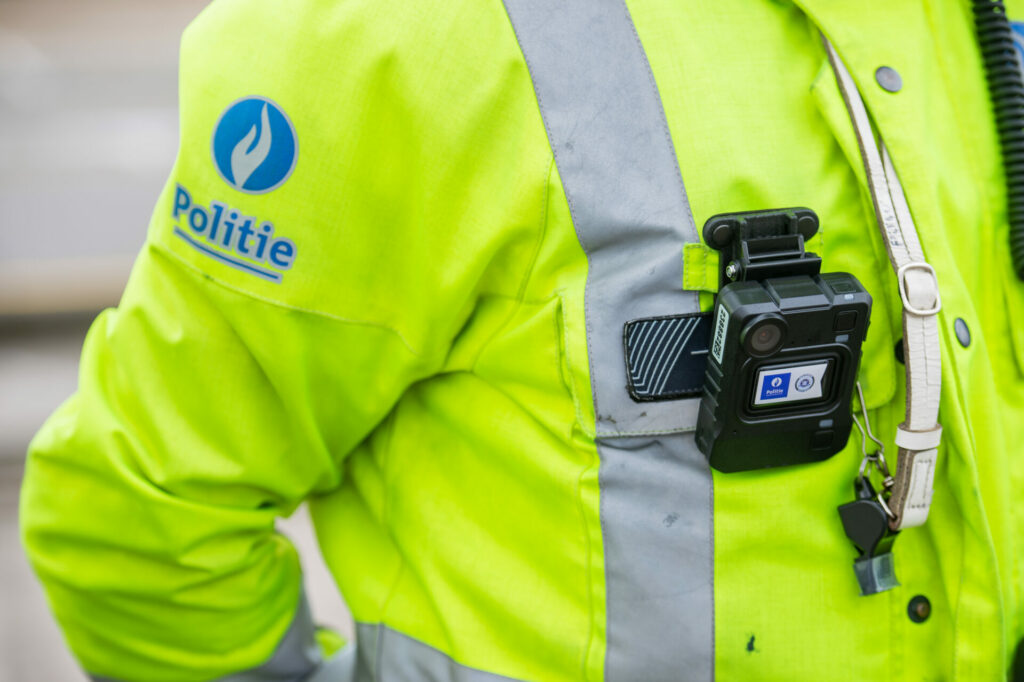The use of bodycams by police officers was not regulated by law until now. On Saturday, a new legal framework for this tool came into force, which is hoped will combat violence by and against police.
Since 2018, the use of bodycams by police was covered by the law on dashcams. Since then, several police officers have been equipped with this gadget, and the first results showed that they have a de-escalating effect and conflicts are more quickly defused because people know they are being filmed.
However, its use was not yet regulated by law, resulting in legal uncertainties, including the use of the images as evidence during a trial. Different police zones used different rules. This all changes on Saturday, when a new law comes into force, entrenching the use of bodycams as an important working tool.
"The police must be able to use modern tools daily. Bodycams help to de-escalate violence, gather more evidence, put interventions in their real context and ensure transparency of police action," said Justice Minister Paul Van Tigchelt.
"With this law, we are providing the right framework so that that police can use bodycams transparently and with full legal certainty can use bodycams. This benefits not only police work but also citizens. Everyone benefits from objective images."
What does the law entail?
A bodycam is an individual mobile camera that is attached to a police uniform and records images and sounds during interventions. Aside from helping to defuse potential violence during the intervention, it helps to paint an objective picture of what exactly took place afterwards. Now the use of bodycams is set in stone, they can also be useful during criminal investigations, trials or disciplinary proceedings and help the police produce a more detailed report.
The law states that the use of bodycams by police officers during an administrative or judicial intervention is not mandatory, but it is possible in several situations.
This includes interventions where there is a real risk of violence or aggression arising, if coercion is used by the police, if the integrity of the police officers, those involved or third parties is compromised, if someone is preparing, committing or has committed a crime, if someone disturbs public order, if the use of the camera is necessary to gather evidence, if one is requisitioned for assistance or if one has to execute a court order.
Images must be kept for at least 30 days, meaning they can no longer simply be erased. The fact that recordings have been made must also be mentioned in the official report drawn up after an intervention.
The law also stipulates that there must always be a pre-recording for 30 seconds so the wider context becomes clear. "This benefits truth-telling and is both to the benefit of the police and the citizen." Citizens should always be informed that they are being filmed but can also ask to activate the bodycam under the new law.
Related News
- Police violence: Officers receive suspended sentences of 3 to 12 months
- Three police officers among 22 people arrested in major drug bust
It is hoped the systematic use of bodycams will not only help curb violence against officers but also tackle violence and brutality by police officers against citizens.
There is no age limit for the filmed person, but the use of the bodycam during interventions involving minors should be limited as much as possible, the law states. The filming can also not violate the General Data Protection Regulation (GDPR), meaning footage should not be distributed and published if police officers are recognisable on it.
A guideline has also been worked out so that its use is uniformly done by police officers across police zones.

